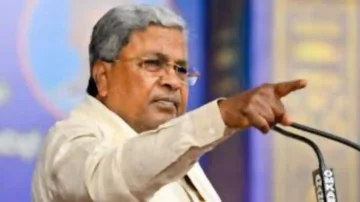New Delhi – The Online Gaming Bill 2025 has officially been passed by the Lok Sabha, marking a historic moment in India’s digital and gaming landscape. With the exponential rise of online gaming in recent years, the need for regulation has become more urgent than ever. The Bill not only addresses concerns related to harmful online money games but also recognizes the immense potential of eSports and educational gaming in shaping India’s future.
By passing the Online Gaming Bill 2025, the government has sent a clear message: it is committed to building a secure, innovative, and responsible gaming ecosystem for the next generation. The Bill seeks to balance innovation with protection, ensuring that while gaming continues to grow as a major digital industry, players especially young people are safeguarded from its harmful effects.

Encouragement of eSports
One of the most progressive features of the Online Gaming Bill 2025 is the official recognition of eSports as a legitimate form of competitive sport. For years, professional gamers in India have demanded that eSports be given the same respect as traditional sports. This Bill answers that demand by empowering the Ministry of Youth Affairs and Sports to set standards and guidelines for eSports events.
The Bill also envisions the creation of training academies, research centres, and technology platforms to support the eSports industry. This will not only help nurture talent but also create new employment opportunities for youth. By including incentive schemes, awareness campaigns, and integrating eSports into broader sports policy initiatives, India is now positioning itself as a global competitor in the billion dollar eSports industry.
Promotion of Educational and Social Games
The Online Gaming Bill 2025 also emphasizes the role of games in education, culture, and digital literacy. The Central Government will be empowered to recognize, categorize, and register social and educational games. This means online games that promote cultural values, life skills, and educational learning will be encouraged and supported.
The Bill further aims to create awareness programs on how social and educational games can play a positive role in skill development, recreation, and digital literacy. By facilitating platforms that develop and distribute safe, age appropriate games, India is ensuring that gaming contributes positively to society rather than becoming a source of harm.
Prohibition of Harmful Online Money Games
One of the most critical aspects of the Online Gaming Bill 2025 is the complete ban on harmful online money games. These games, often based on chance, have been linked to gambling addiction, financial losses, and mental health issues among players. The Bill strictly prohibits the operation, promotion, and advertising of such games across all media.
Additionally, banks and payment systems are barred from processing transactions related to online money games. This will cut off the financial backbone of unlawful platforms and safeguard vulnerable citizens, particularly the youth. The government has also given itself the power to block access to illegal gaming platforms under the Information Technology Act, 2000, thereby ensuring strict compliance.
Establishment of an Online Gaming Authority
To ensure the effective implementation of the Online Gaming Bill 2025, the Central Government will set up a national-level Online Gaming Authority. This body will be responsible for categorizing and registering online games, determining whether a game qualifies as a money game, and handling complaints from users.
The Authority will also have the power to issue guidelines, codes of practice, and orders to maintain compliance and transparency. With such a regulatory framework in place, India will be able to foster a safe and innovative gaming ecosystem while also holding operators accountable.
Why the Online Gaming Bill 2025 Matters
The passage of the Online Gaming Bill 2025 comes at a time when India’s gaming industry is booming. With affordable smartphones, cheap internet, and a large youth population, online gaming has witnessed unprecedented growth. However, this growth has also come with challenges such as addiction, financial exploitation, and exposure to harmful content.
By promoting eSports and educational games while banning harmful money games, the government is striking the right balance. The Bill protects citizens from risks while enabling India to leverage gaming as a tool for innovation, education, and global competitiveness.
Conclusion
The Online Gaming Bill 2025 is not just about regulation—it is about creating a future-ready framework for responsible digital entertainment. By encouraging eSports, supporting educational and cultural games, banning harmful online money games, and establishing a strong regulatory authority, the Bill lays down a roadmap for safe, secure, and innovative gaming in India.
As the gaming industry continues to evolve, this legislation ensures that India remains at the forefront of innovation while safeguarding its citizens. The Online Gaming Bill 2025 is indeed a landmark step towards building a secure digital future.
According to data Govt. estimates 45 crore people lose about Rs 20,000 crore annually from real money gaming. So, it is very important to regulate online gaming industry where many people lost money and even took their life suicide and some are in heavy debt.

















